Elderberries
Howunder® - Sambucus canadensis as a garden elderberry
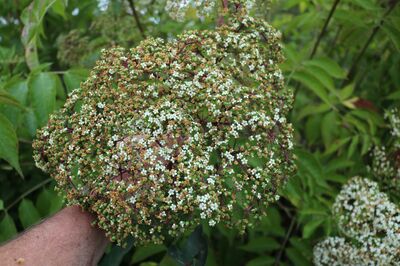
In addition to the black elderberry (Sambucus nigra), other species have great horticultural potential. Apart from the different native elderberry species used as wild and bird food trees, there is also the Canadian elderberry – sometimes also known as the American elderberry. In this article, we would like to show how the Howunder® – what we call the Canadian elderberry – can enrich any assortment and any garden.
Read moreHow do I put together my berry assortment?
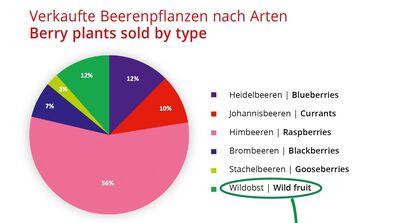
Hopefully they are on holiday. Or even better, enjoy the fact that everyone else is on holiday. But once again, every plant producer is wondering which berry plants, varieties and assortments to choose for next spring. Because soon the young plants will have to be ordered. At Lubera Edibles, too, young plant production is controlled according to the order history and incoming orders. Later in winter or spring, you then have to take what is still available.
Read moreWild fruit breeding at Lubera®
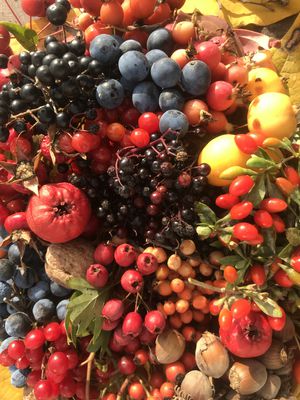
Unknown or little-known, hardly noticed fruit species are also worked on in the Lubera breeding programme. But why do we care about the obscure, little demanded, often not directly edible berry and fruit species, when we could possibly invest more in raspberry breeding? In this article, Markus Kobelt shows the importance of wild fruit species in the Lubera breeding programme and also describes in concrete terms the objectives for which research is carried out on the various wild fruit species.
Read moreThe exclusive Lubera Edibles assortment poster – all 'edible' young plants at a glance
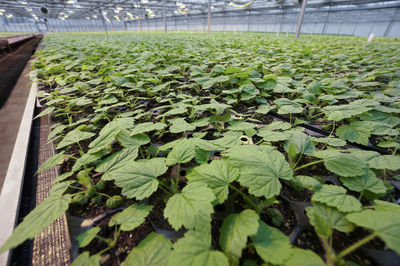
As in so many industries and areas of everyday life, the trend is moving towards more online-based advertising and paperless communication. However, at the moment, we do not want to do without print media entirely. Last autumn, for example, we were already able to present our current young plant catalogue for 2020. Many of you have already received the printed version and at the same time our young plant catalogue is also available at luberaedibles.com in the download area.
Read moreWild fruit young plants and specialities – A niche assortment with a future

Learn more about Lubera Edibles’ range of wild fruit young plants.
By definition, wild fruit is fruit that has been only minimally cultivated. However, since the transition to cultivated fruit is quite smooth, an exact separation is often not possible at all. Wild fruits are often pure processing fruits. But not all of them. There are also fruits that are very suitable for eating fresh.
In addition, the plants are not only valuable for harvesting. The wild fruit plants also have a high ecological...
Read moreThe availability list of Lubera Edibles – more up to date, more complete and clearer
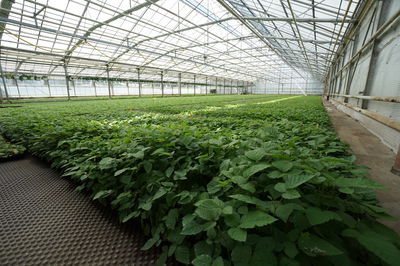
With the founding of our young plant distribution company Lubera Edibles GmbH, we have not only aligned our marketing concept and our online presence with that of our sister company Lubera, we have also taken over key elements from the former distribution company. One of these key elements was, is and remains the availability list. Previously only updated from time to time and delivered upon customer request, the newly revised availability list with a similar layout is now always accessible on...
Read moreOur assortment of 'edible' young plants

As the new company name, Lubera Edibles®, already suggests, we are expanding our range of young plants from classic soft fruits, such as raspberries, blackberries or blueberries, to anything that can be consumed in any way. This includes edible fruits like kiwis, apples and pears. Or edible roots such as horseradish, Jerusalem artichoke or potato. But also edible leaves, petioles, flowers such as sea kale, tea or rhubarb. We would like to introduce our most important groups of crops in the...
Read moreThe range of soft fruit young plants
This video explains all about the young berry plant range from 'Lubera Edibles. These include: blackberries, strawberries, raspberries, kiwis and gooseberries. 'Lubera Edibles' is the young plant division of Lubera, it provides a large selection of delicious fruit varieties to growers. The companies of Robert Mayer and Lubera have joined forces to produce these young plants through the breeding of new edible varieties at Lubera which are then coordinated with the product development and in-vitro...
Read more